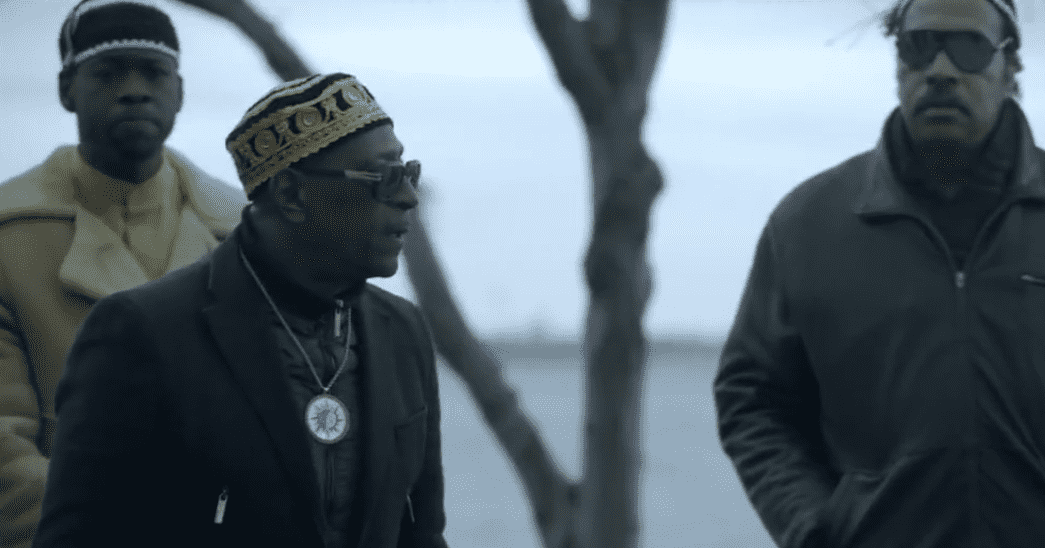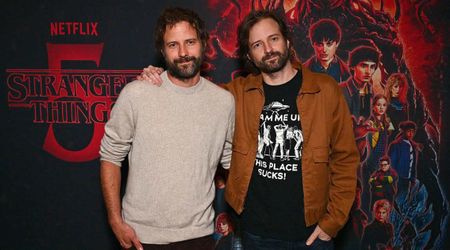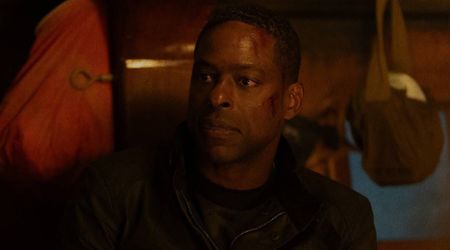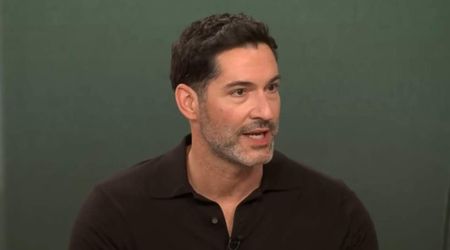'Wu-Tang: An American Saga' season 1 episode 4 moves sows seeds of legendary hip hop group

In the fourth episode of Hulu's 'Wu-Tang: An American Saga', the viewers are given clues to the influences that led to the formation of the Wu-Tang Clan, the origins of the principles behind the RZA's concept for the group and their music. They're small clues and perhaps only the keenest fans of the hip-hop group would notice these and immediately make the connection.
When Dennis comes over to meet Divine, he spies the tape for the 1983 Hong Kong martial arts film, 'Shaolin vs Wu Tang', directed by Gordon Liu and starring Adam Cheng and even those new to the group will know this is a direct reference. Shurrie mentions how the film is Bobby's favorite, and indeed, he goes on to take the name for the group from this movie. Kung Fu and the principles of martial arts have played a big role in creating the image of the Wu-Tang Clan and in its music different Kung Fu films have been sampled. In a video for the Vanity Fair, the RZA even breaks down some of the films from which he borrowed his tracks. The influence of the genre is seen clearly with the RZA speaking about specific scenes from the movies that inspired him.
The movie that Bobby, Gary, Dennis and Ason watch in the basement is 36th Chamber of Shaolin -- a 1978 Hong Kong film starring Gordon Liu, directed by Liu Chia-liang and produced by Shaw Brothers. An alternate title for this film is The Master Killer. #WuTangOnHulu pic.twitter.com/G3LCrnglU7
— Gabe Fonseca (@MrGabeFonseca) September 12, 2019
In the fourth episode, there are other references to martial arts films. In the scene where Dennis, Bobby, Gary, and Ason are watching a movie in the basement, the movie is the 1978 film, '36th Chamber of the Shaolin'. 'Enter the Wu-Tang (36 Chambers) was the name of the group's first album- the one that started it all. The movie has an alternate title, 'The Master Killer', which is the origin of the moniker Masta Killa picked by Jamel Irief, a member of the group. In another scene, where Darius and Darren are watching a movie with Shurrie over at Dennis's house looking after them, the movie being played is 'Executioners from Shaolin', released in 1977. The particular scene that Dennis's younger brothers are watching, features the line "Tiger Style!", which was sampled at the beginning of "Wu-Tang Clan Ain't Nothing Ta F*** Wit'", one of the songs on the debut album.
Then there is the scene where Bobby (now RZA) is playing chess in the park with an older gentleman. He is distracted, however, by a group in the background and a man giving a speech. He is, in fact, preaching to the people gathered around him the principles of the Five Percent Nation. We see this group and this man before as well when Bobby is selling weed in the park, the scenes cut together. When Bobby makes enough money, the scene cuts to him having bought the drum machine he has been looking at since the first episode and while he is setting up the equipment, the man's preachings still continue in a voiceover.

The Five-Percent Nation, also known as the Nation of Gods and Earths, is a movement that was founded in the 60s. It follows the principle that 10% of the population knows the truth of existence, and of these while part of them used this knowledge to keep the rest of the world in ignorance to control of them, the remaining 5% of the people who know this truth instead use their knowledge for good and to enlighten the rest of the masses. This is a movement that has been intertwined with hip-hop since the beginning and the music has been used to spread its principles; it has influenced many from the Wu-Tang Clan to Jay-Z. This movement also includes the Supreme Alphabet, a system of finding deeper meaning in a text by assigning meanings to letters. One of the backronyms the group developed for its name is "Wisdom of the Universe, and the Truth of Allah for the Nation of the Gods".
The teachings of the Five-Percent Nation also found its way into the group's lyrics. Not only did they use the concepts of the Supreme Alphabet and the Supreme Mathematics in their lyrics, but they also explored the teachings of the movement through their music. A lot of lines throughout the Wu-Tang Clan's albums and solo albums of its members referenced Five-Percent terminology heavily.
Hulu's 'Wu-Tang: An American Saga' is surely showing a slow-burn development of the group, from bringing its members together from opposing hoods, to peppering each episode with references to everything that influenced the Wu-Tang Clan and its music. These easter eggs are of course a treat to longtime fans of the group, but they also give newer Wu-Tang fans the chance to understand the origins of the music and how they were positioned to reform east coast hip-hop.










